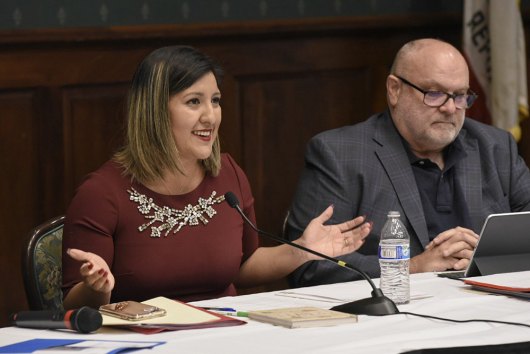State Senator Hurtado sponsors legislation to address state's doctor shortage

While California and the nation work to address the COVID-19 pandemic, local medical communities continue to struggle with a deficit of healthcare providers around the state. According to the Future Health Workforce Commission, California*, California will face a shortage of up to 4,000 doctors by 2030.
"The heavy toll of morbidity and mortality of the COVID19 pandemic on minority communities is linked to the disproportionate burden of chronic diseases they carry. The evidence is clear that access to care from a diverse provider healthcare workforce would reduce this burden and could have dramatically reduced the devastating impact of SARS-CoV2 virus on these communities," said James E.K. Hildreth, Ph.D., MD, President & Chief Executive Officer, Meharry Medical College
"To address this shortage and increased need due to COVID-19, I introduced SB 1110 (Hurtado) California Medicine Scholars Program," said Hurtado. "This new proposal will establish a three-year pilot program in four regions across the state that will create a supportive pathway for our community college students to pursue pre-med training. There has never been an opportunity for low-income minority communities to attend Medical school in their own community, and this is aimed to fix that."
She added that the COVID19 pandemic has put into sharp focus the issues of medically underserved areas like Central Valley. A healthier Central Valley means it is better prepared to withstand this epidemic. Data shows that patients that have more co-morbid chronic conditions tend to do worse.
Others have seen reports across the country about how the virus has hit minority and low-income communities harder. Hurtado's bill takes the long view to encourage and train future doctors and health professionals, ensuring the health and healthcare of the valley's communities, said Chang Na MD MPH, President of Kern County Medical Society.
"Every crisis we face as a nation and as a state hits our most vulnerable communities the hardest. The COVID19 pandemic is no different. What is different is that we are having a serious discussion about underlying inequities and disparities, such as obesity, stress, poverty, and structural racism. A diverse, culturally competent healthcare workforce is one tool we can use to reduce these disparities, building up communities to be healthier and more prepared for the next virus or health crisis," said Ramon A. Hernandez, DrPH, MPH, UC San Diego, School of Medicine, Department of Pediatrics
The Legislature will hear SB 1110 in the coming months.
Seeking History
- Local congressman, with Republican help, gets language in Senate veterans' bill
- Local congressman, TJ Cox, releases 2020 mid-year report of district accomplishments
- Local Rep. TJ Cox joins California delegation in urging USDA to help feed seniors
- Rep. TJ Cox introduces bipartisan bill to confront threat of methamphetamines
- Congressman Cox secures federal funding for under served communities in Central Valley
- Local officials sign letter urging next COVID-19 aid package includes funding for local government
_0.jpg)

.jpg)



